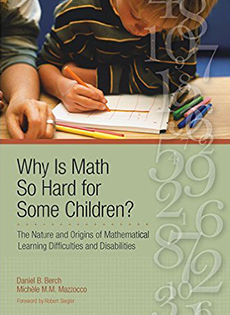What is Dyscalculia?
Dyscalculia is a term for specific learning disabilities related to math. Students may have trouble understanding the real-world meaning of numbers, forget basic math facts, or struggle with simple problem-solving skills.1
- 5-6% Of school-age children are estimated to have dyscalculia2
- 2 out of 3 People don’t know what dyscalculia is4
- 60% Of children with dyslexia also have trouble with numbers3
early signs of dyscalculia
- Struggles with counting, number facts, and basic calculations4
- Difficulty with measurement, telling time, counting money, and estimating number quantities4
- Trouble with mental math and problem-solving strategies4
- Difficulty with connecting numbers to real-life situations, e.g. “five cookies”5
- Struggles to recognize patterns or sort items by size5
What to Do if You Notice Signs of Dyscalculia
Take Notes
If your child struggles with numbers and basic math concepts, start taking notes on the specific issues you see. You’ll want to have specific examples and talking points to bring up with educators and specialists.
Talk to Your Child’s Teacher
If you see signs of dyscalculia, take the time to discuss these issues with your child’s teacher. Walk through your list of recorded observations and ask how your child performs in math class.
Request an Evaluation
Ask your child’s teacher whether your child qualifies for testing through the school, or set up a test through a private evaluator. This evaluation will identify the specific issues your child may be struggling with.
Be Proactive and Trust Your Gut
Teachers or administrators may say, “Math just isn’t your child’s best subject,” but as a parent, you know your child best. Don’t be afraid to ask for a second opinion or speak up to ensure your child is getting the instruction he or she needs.
What to Do if Your Child is Diagnosed with Dyscalculia
Find a Specialist
Your child’s school may offer specialized instruction, or you may need to consult a private tutor. Look for specialists with full certification and continuing professional education specific to dyscalculia.
Request Classroom Accommodations
Speak with your child’s teacher about making simple adjustments to help your child thrive. For example, ask the teacher to:
- Provide graph paper to help your child organize his or her thoughts on paper1
- Suggest different ways to approach math facts, instead of simply memorizing1
- Always have pencils and erasers available for use1
Create an Individualized Education Plan
Ask your child’s school about creating a formal Individualized Education Plan (IEP). This plan is designed to fit your child’s needs and will spell out specific classroom accommodations. Make sure you request a written copy of the IEP for your own records.2
Common Dyscalculia Myths
Myth:Trouble in high-level math classes is a telltale sign of dyscalculia.
Fact:Dyscalculia typically causes issues with the most basic math skills.5
Myth:Dyscalculia is not related to other learning disabilities.
Fact:While dyscalculia can and does occur alone, it can also occur alongside attention-deficit disorder (ADHD), dyslexia, dysgraphia, and other learning disabilities.
Myth:Smart children don’t have dyscalculia.
Fact:Many people with dyscalculia thrive in the classroom and beyond. With the right instruction, students with dyscalculia can do well in math and other subjects.
Myth:Dyscalculia has the same symptoms for everyone.
Fact:Dyscalculia has different symptoms for different people. Some students understand the logic behind a math concept, but struggle with the application of specific problem-solving skills. For others, the opposite may be true.5
Myth:Dyscalculia is a well-studied learning disability.
Fact:The number of dyscalculia-related studies does not even begin to compare to the number of dyslexia-related studies. In fact, reading disability studies outnumber math disability studies by a ratio of 14:1.6
Additional Resources on Dyscalculia
Shop through AmazonSmile and Amazon will donate 0.5% of your purchase to Churchill.


My Thirteenth Winter: A Memoir
Samantha Abeel
Why is Math So Hard for Some Children?: The Nature and Origins of Mathematical Learning Difficulties and Disabilities
Daniel B. Berch and Michele M.M. Mazzocco
References
- LD Online. Retrieved from http://www.ldonline.org/article/13709?theme=print
- Mathematics Learning Disorder Treatment & Management. Medscape. Retrieved from http://emedicine.medscape.com/article/915176-treatment
- Dyscalculia: Key Facts for Parents. nferNelson. http://www.mathematicalbrain.com/pdf/NFER.pdf
- Cortiella, Candace and Horowitz, Sheldon H. The State of Learning Disabilities: Facts, Trends and Emerging Issues. New York: National Center for Learning Disabilities, 2014, from http://www.ncld.org/wp-content/uploads/2014/11/2014-State-of-LD.pdf
- Understanding Dyscalculia. Understood. Retrieved from https://www.understood.org/en/learning-attention-issues/child-learning-disabilities/dyscalculia/understanding-dyscalculia
- How Can a Smart Kid Be So Bad at Math? Discover. July/August 2013. Retrieved from http://discovermagazine.com/2013/julyaug/20-learning-disability-dyscalculia-explains-how-a-smart-kid-can-be-so-bad-at-math#.UlrK1hbHKZY